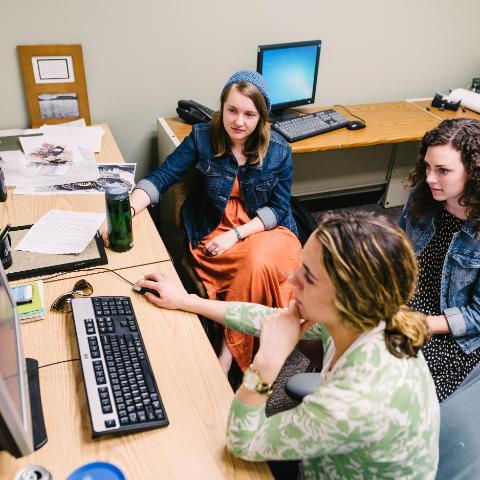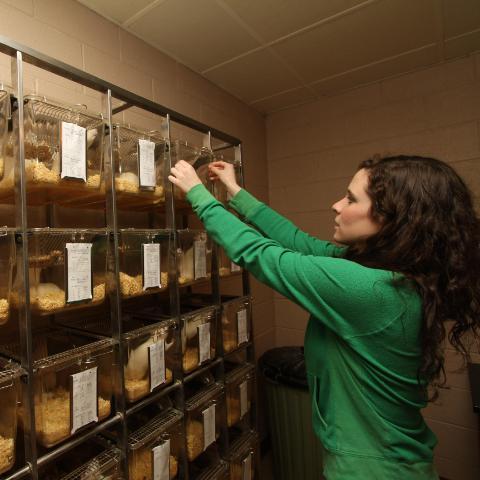Why Study Psychology?
As a student in the Wheaton College undergraduate psychology program, you’ll learn the traditional theoretical, empirical, and applied areas of psychology and clinical psychology and gain insights into how to understand human behavior. We’ll teach you how to conduct psychological research and how to evaluate the important theories and presuppositions in psychology from a Christian perspective. You’ll be prepared to meet academic standards required for graduate work in any number of areas, including psychology, neuroscience, medicine, law, theology, etc. You’ll also be exposed to principles of human behavior that promote success in any area of life, from the job market, to parenting and beyond!
Why Study Psychology at Wheaton?
A Psychology major informs you in human behavior in a way that can transform all your life endeavors, whether personal relationships, vocational direction, business relationships, or political and public policy stances. Service organizations and community agencies often prefer employees with Psychology degrees or related training.
An education in psychology is also critical preparation for professional fields in psychology such as counseling, academic research, applied research, organizational psychology, neuroscience and related fields. Many of our majors are pre-health science students who recognize that psychological education can help them be better clinicians by helping them better understand human behavior.
Conduct research with faculty from our undergraduate, masters and doctoral programs. This high-level experience is rare among liberal arts colleges and can lead to placement in prestigious summer research internships and graduate programs.
Our experienced faculty have more than 253 years of combined experience and have published 14 books and more than 120 professional articles.
- Internships provide experiential learning to help consolidate and comprehend the material learned in our courses. They also aid decisions about the future vocational use of your psychology training.
- At Wheaton, you’ll have the opportunity to become a member of the local chapter of Psi Chi, the National Honor Society in psychology. Psi Chi offers a variety of monetary awards for research and attending conferences, as well as educational and social activities for all psychology students throughout the school year.
- Scandrette Lecture - This annual lecture focuses on the Integration of Psychology and Christianity. It generally takes place during the spring semester and is designed to address issues of interest to Christian psychologists.
- Global and Experiential Learning – semester study abroad programs, summer study abroad programs, spring break co-curricular trips.
What Will I Learn?
The BA in Psychology will entail the study of the mind and behavior. A degree in psychology is excellent preparation for a variety of careers involving serving others and investigating human behavior.
Students in any major can complete a Psychology minor by taking 20 hours of psychology courses offered by the department.
The department offers an honors program for those students who meet the academic qualifications and are approved by department faculty.
The Neuroscience certificate provides students with multidisciplinary training in the structure and function of the nervous system. It provides a strong foundation for graduate training in neuroscience or psychobiology, as well as clinical psychology, psychiatry, pharmacology, or psychiatric-mental health nursing.
The psychology programs at Wheaton College Graduate School will prepare you to become a competent mental health professional with a distinctively Christian perspective and a heart for service. We offer four graduate psychology programs:
- Doctor of Psychology in Clinical Psychology (Psy.D.)
- Doctorate in Clinical Psychology (Ph.D.)
- Master of Arts in Clinical Mental Health Counseling (M.A.)
- Master of Arts in Marriage and Family Therapy (M.A.)
Consult the course catalog for full listing of current courses available in this field.



